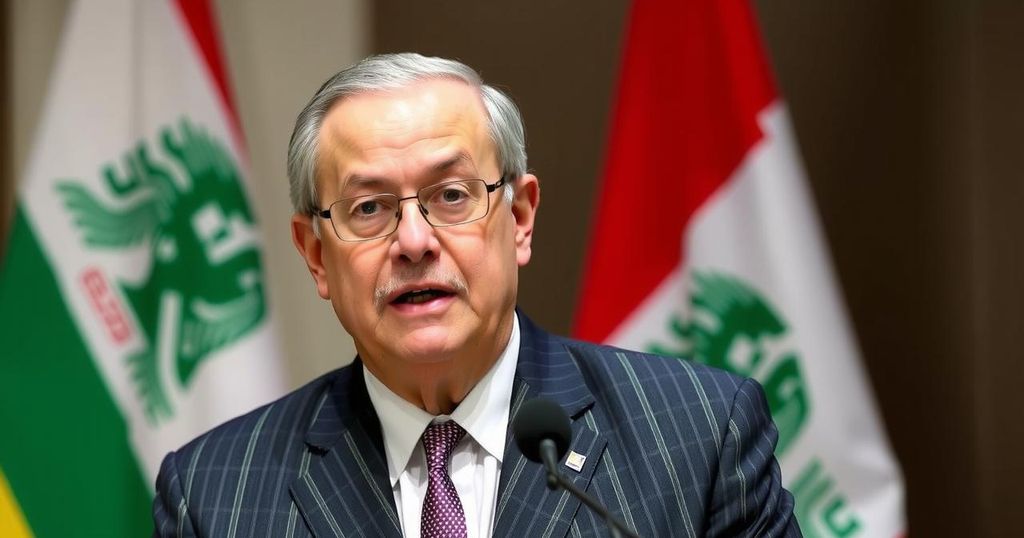Egypt has called for a Lebanese-led solution to the ongoing presidential vacuum, emphasizing the need for national consensus and rejecting external pressures. As Lebanon prepares for parliamentary elections on January 9, political factions remain divided, complicating efforts to elect a new president after more than two years of vacancy since October 2022, following Michel Aoun’s exit.
On Tuesday, Egyptian Foreign Minister Badr Abdelatty reiterated the necessity for a Lebanese consensus to resolve the ongoing presidential vacuum in Lebanon, advocating for solutions devoid of external pressures. This assertion was made during a telephonic discussion with Jean-Yves Le Drian, France’s Special Envoy to Lebanon, focusing on developments regarding the presidential election as the Lebanese Parliament prepares to convene on January 9. Abdelatty underscored the importance of fostering national ownership in the election process and pledged Egypt’s continued support for Lebanon amid these challenging times.
Lebanon has been without a president since the conclusion of Michel Aoun’s term in October 2022. During this interval, the Parliament has convened thirteen times but has yet to elect a successor due to a lack of agreement among political factions. Speaker Nabih Berri has reiterated the urgency of convening a parliamentary session aimed at electing a president. The upcoming session, scheduled for January 9, follows a protracted period marked by political division and external threats, including ongoing tensions with Israel.
The Lebanese political situation is characterized by a fragmented Parliament lacking a dominant bloc, necessitating that various factions reach a consensus to elect a president. According to the Lebanese Constitution, at least 86 members must be present to vote, and a candidate requires 65 votes to secure victory in the first round or an absolute majority thereafter. Amid these complexities, Hezbollah’s leadership has expressed willingness to cooperate towards establishing a functional government, emphasizing the importance of electing a unifying candidate. Furthermore, significant figures in Lebanese politics, such as Walid Jumblatt, have backed specific presidential candidates, reflecting the ongoing intricate negotiations among factions.
As Lebanon approaches the critical parliamentary session, the stakes are considerable. The nation is grappling with various internal and external challenges, including economic difficulties and security threats stemming from its geopolitical context. Timely and unified action is imperative to restore stability and governance in Lebanon.
The presidential vacuum in Lebanon has persisted since October 2022, following the end of former President Michel Aoun’s term. Over the past two years, the Parliament has failed to elect a new president, hampered by the lack of consensus among competing political factions. Speaker Nabih Berri has been vocal about the urgency of resolving this vacuum, especially given the backdrop of a ceasefire with Israel and the nation’s multifaceted crises. The situation is further complicated by Lebanon’s sectarian political structure, which requires cooperation among various blocs for the election of a president.
In summary, the call by Egyptian Foreign Minister Badr Abdelatty for a Lebanese consensus reflects the urgent need to address the two-year presidential vacuum in Lebanon. As the Parliament prepares for a critical session on January 9, the potential for establishing a unifying presidential candidate remains tethered to the ability of political factions to reach a compromise. The stability of Lebanon, facing significant internal and external challenges, hinges on this pivotal moment.
Original Source: www.dailynewsegypt.com






